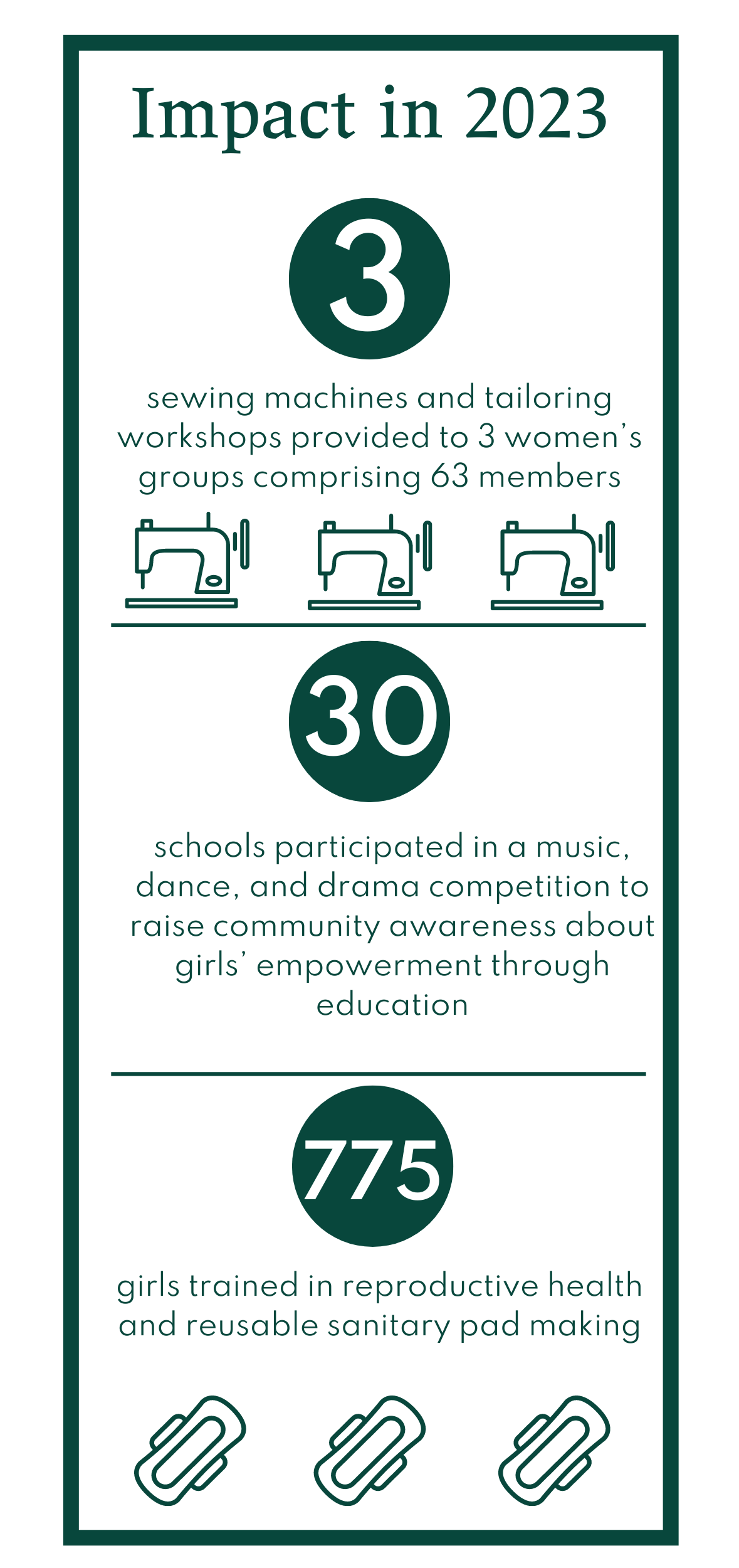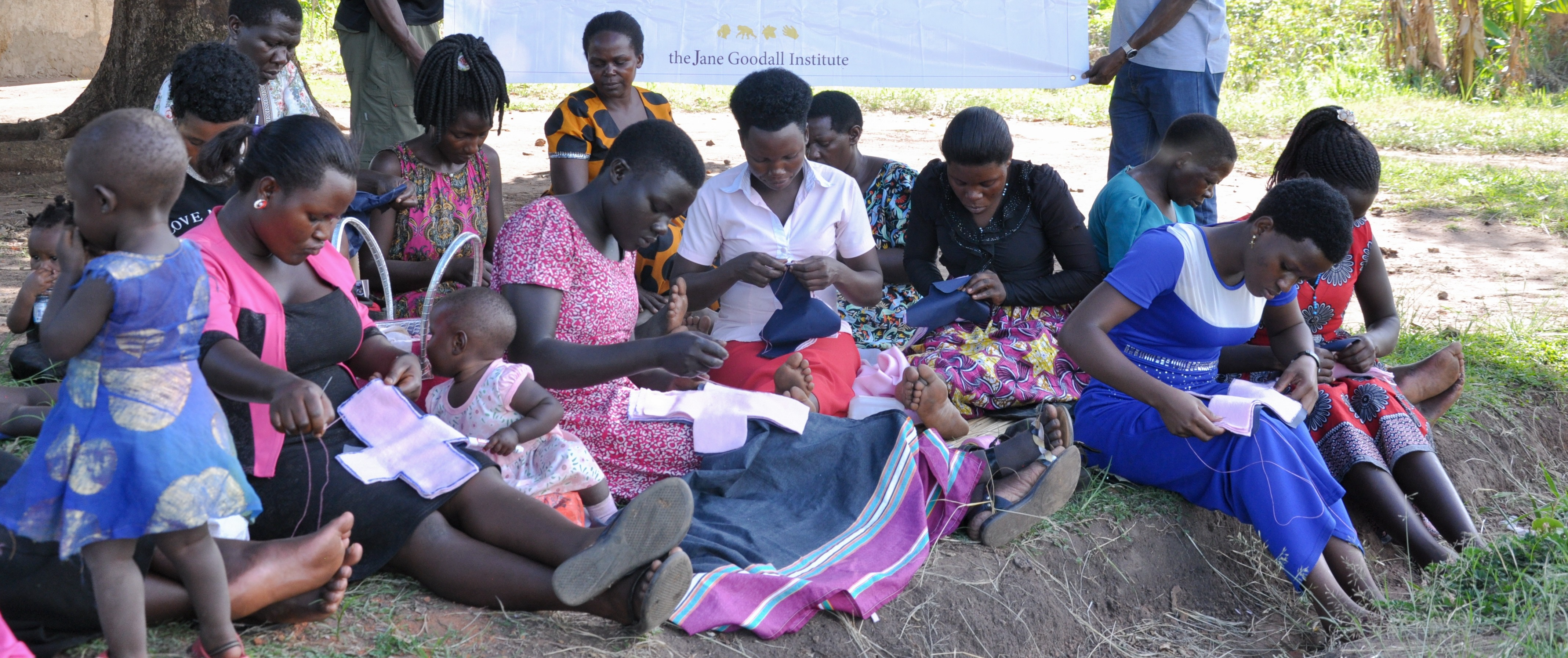Uganda:
The Pearl of Africa
The Albertine Rift, extending from the northern part of Lake Albert, through Western Uganda, Rwanda, the Democratic Republic of Congo, Burundi and Tanzania, to the southern tip of Lake Tanganyika, is one of the highest priority areas for biodiversity conservation in Africa. 402 species of mammals (39% of African mammal diversity) including gorillas, chimpanzees, elephants, bongos, thousands of birds and plants, hundreds of reptiles, as well as small and large carnivores are all found in the Albertine Rift region. Uganda is estimated to contain about 5,000 endangered eastern chimpanzees (Pan troglodytes schweinfurthii).
Girls’ and Women’s Empowerment Project
Strategy
Improving the resilience of communities by empowering women and girls
Key outcomes
- Girls and women can sustainably manage their periods through reusable sanitary pad making training
- Girls can complete their full education cycle through the reduction of barriers that impede their ability to attend school
- Girls and women have the agency to make life choices that are consistent with chimpanzee conservation and sustainable natural resource management


Project Overview
Since 2008, the Jane Goodall Institute Australia has been collaborating with the Jane Goodall Institute Uganda to empower girls and women through increased access to education. Each year, we help hundreds of girls and women better understand and manage their reproductive health, with a strong focus on menstrual hygiene management.
Our project uses a peer education model, where girls and women support each other by sharing knowledge and skills. This type of knowledge transmission encourages collaboration, and the reciprocal exchange of insights, experiences, and expertise. It also vastly increases the scale of the project’s impact.
Our area of implementation is chosen to target regions of western Uganda where large numbers of chimpanzees live in remnant forests outside protected areas, leaving them particularly vulnerable to a range of threats like habitat loss and degradation, and human-chimpanzee conflict.
By increasing access to education for girls and improved livelihoods for women that live near these chimpanzee habitats, we start effecting systemic change. Helping girls stay in school contributes to reducing local poverty over the long-term, subsequently reducing pressure on the surrounding forests.
2025 Funding Needs








